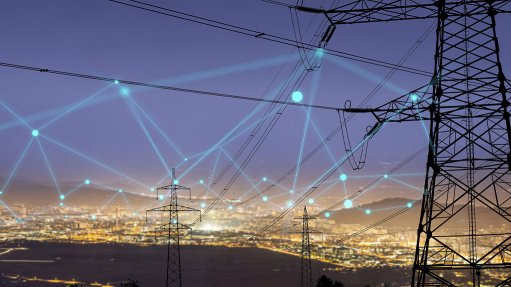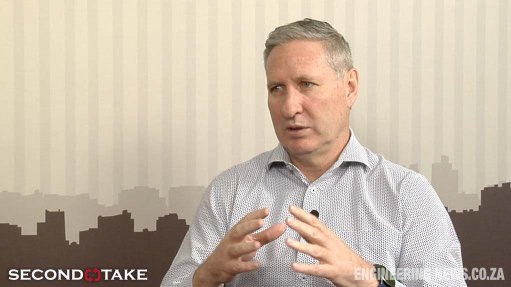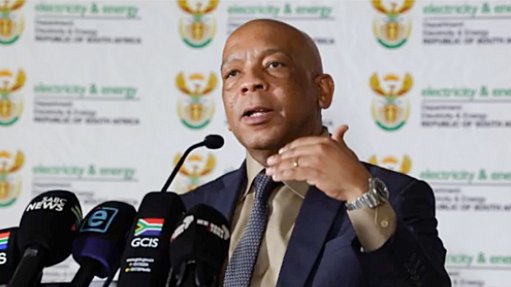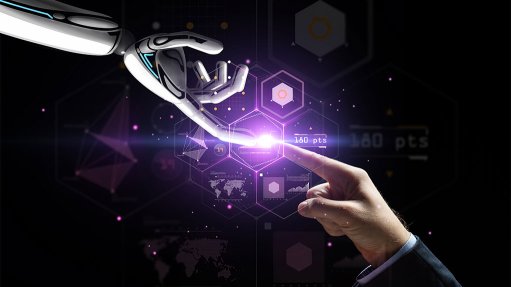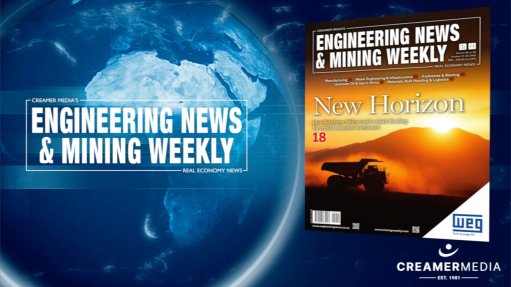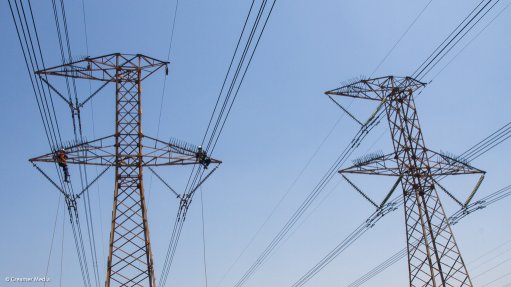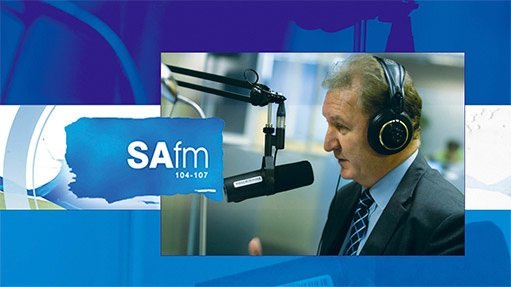SAICE celebrates critical thinking, ethical reflection this Global Ethics Day
This article has been supplied and will be available for a limited time only on this website.
Corruption in the civil engineering and construction sector continues to undermine infrastructure delivery and public trust. South Africa scored 41 points out of 100 on the 2024 Corruption Perceptions Index[1], indicating a challenging national corruption environment that also impacts the construction sector, underscoring the urgent need for strong ethical governance, transparency and protection for whistleblowers in the sector.
Unethical procurement practices have devastating ripple effects on the economy and society. In the public sector, such practices often result in the misallocation of funds intended for critical infrastructure such as roads, water systems, and housing. In the private sector, they distort fair competition and erode the integrity of the market.
Corruption poses one of the greatest threats to the success and sustainability of infrastructure development in South Africa, distorting tender processes, leading to inflated project costs, and resulting in substandard work that jeopardises both public funds and public safety. When ethical boundaries are crossed, the ultimate victims are citizens who are denied access to reliable, safe, and affordable infrastructure.
“Beyond the financial and technical implications, corruption also damages the moral fabric of our profession, discouraging ethical engineers who strive to uphold their duty to the public. At SAICE, we continue to advocate for integrity-driven leadership within both the public and private sectors to restore confidence in infrastructure delivery,” comments Sekadi Phayane-Shakhane, CEO of the South African Institution of Civil Engineering (SAICE).
The reputational damage is also immense. Once the public loses confidence in the engineering profession’s ability to deliver transparently and competently, the entire sector suffers. For this reason, SAICE continues to champion ethical procurement standards and encourages our members to prioritise long-term value and societal impact over short-term gain.
From a technical perspective, unethical procurement compromises safety and quality. When contracts are awarded based on favouritism or bribery instead of competence and compliance, the resulting structures are often substandard and unsafe. These risks not only endanger lives but also increase the cost of maintenance and rehabilitation.
Another challenge lies in the culture of silence that often prevails within the industry. Many professionals, particularly younger engineers and small contractors, feel powerless to challenge unethical directives or report malpractice due to fear of intimidation, blacklisting, or professional isolation.
According to Takalani Netshipale, SAICE’s Ethics Panel Chairperson, “Corruption forces professionals into untenable ethical dilemmas — choosing between doing the right thing and keeping their livelihoods and creates an environment of moral fatigue and fear.”
“Combating corruption is therefore not only about legal enforcement; it is about restoring professional dignity and creating spaces where engineers can practice their craft without compromise,” Netshipale notes.
“We believe that ethics must be embedded into the DNA of engineering practice as a lived experience. By fostering critical thinking and ethical reflection in every stage of professional development, we ensure that South African civil engineers remain globally respected and trusted custodians of public welfare,” Phayane-Shakhane shares.
Transparency is a cornerstone of professional integrity. SAICE’s Code of Ethics sets out clear expectations for honesty, fairness, and accountability in all engineering practice. Through workshops, campaigns, and public engagements, the organisation raises awareness about the importance of ethical conduct, equipping members with tools to make transparent, responsible decisions in their daily work.
“At SAICE, we also play an advocacy role, working alongside regulators and industry leaders to promote open tendering systems, clear audit trails, and ethical oversight mechanisms in infrastructure projects. These are vital to building a culture of trust that sustains the civil engineering profession,” says Phayane-Shakhane.
“We believe transparency starts at an individual level. Through our ethics dialogues, mentoring programmes, and the SAICE Ethics Imbizo, our engineers are encouraged to adopt proactive transparency practices, communicate openly, and disclose potential conflicts of interest. These behaviours, when multiplied across the sector, can meaningfully reduce opportunities for corruption to take root,” Phayane-Shakhane confirms.
Intimidation remains one of the most significant barriers to ethical accountability in this sector. This intimidation can take many forms: coercion to sign off on non-compliant work, threats from contractors or clients, or isolation within their own organisations. These experiences can be psychologically and professionally devastating.
Professionals who report wrongdoing often face subtle and overt forms of retaliation, from exclusion in future projects to professional defamation and even threats to personal safety. This culture of fear undermines integrity and perpetuates impunity.
“At SAICE, we are deeply committed to breaking this cycle of intimidation and fear of whistleblowers. We advocate for environments where ethical professionals are celebrated, not punished, for their courage. Our Ethics Committee ensures that members have a safe and confidential space and that they understand their rights and available reporting channels,” adds Netshipale.
Fair and transparent procurement is the bedrock of ethical infrastructure delivery. SAICE continuously engages with government and industry to promote procurement reforms that prioritise quality, competence, and ethics over cost alone.
When procurement processes are driven by ethical principles, the entire project lifecycle benefits, from planning and design to implementation and maintenance.
“This Global Ethics Day, we recognise our role at SAICE is to ensure that engineers are not passive participants but active stewards of transparency and fairness. We continually emphasise that procurement decisions must be guided by the public interest, not private gain,” concludes Phayane-Shakhane.
Article Enquiry
Email Article
Save Article
To advertise email advertising@creamermedia.co.za or click here
Comments
Press Office
Announcements
What's On
Subscribe to improve your user experience...
Option 1 (equivalent of R125 a month):
Receive a weekly copy of Creamer Media's Engineering News & Mining Weekly magazine
(print copy for those in South Africa and e-magazine for those outside of South Africa)
Receive daily email newsletters
Access to full search results
Access archive of magazine back copies
Access to Projects in Progress
Access to ONE Research Report of your choice in PDF format
Option 2 (equivalent of R375 a month):
All benefits from Option 1
PLUS
Access to Creamer Media's Research Channel Africa for ALL Research Reports, in PDF format, on various industrial and mining sectors
including Electricity; Water; Energy Transition; Hydrogen; Roads, Rail and Ports; Coal; Gold; Platinum; Battery Metals; etc.
Already a subscriber?
Forgotten your password?
Receive weekly copy of Creamer Media's Engineering News & Mining Weekly magazine (print copy for those in South Africa and e-magazine for those outside of South Africa)
➕
Recieve daily email newsletters
➕
Access to full search results
➕
Access archive of magazine back copies
➕
Access to Projects in Progress
➕
Access to ONE Research Report of your choice in PDF format
RESEARCH CHANNEL AFRICA
R4500 (equivalent of R375 a month)
SUBSCRIBEAll benefits from Option 1
➕
Access to Creamer Media's Research Channel Africa for ALL Research Reports on various industrial and mining sectors, in PDF format, including on:
Electricity
➕
Water
➕
Energy Transition
➕
Hydrogen
➕
Roads, Rail and Ports
➕
Coal
➕
Gold
➕
Platinum
➕
Battery Metals
➕
etc.
Receive all benefits from Option 1 or Option 2 delivered to numerous people at your company
➕
Multiple User names and Passwords for simultaneous log-ins
➕
Intranet integration access to all in your organisation








